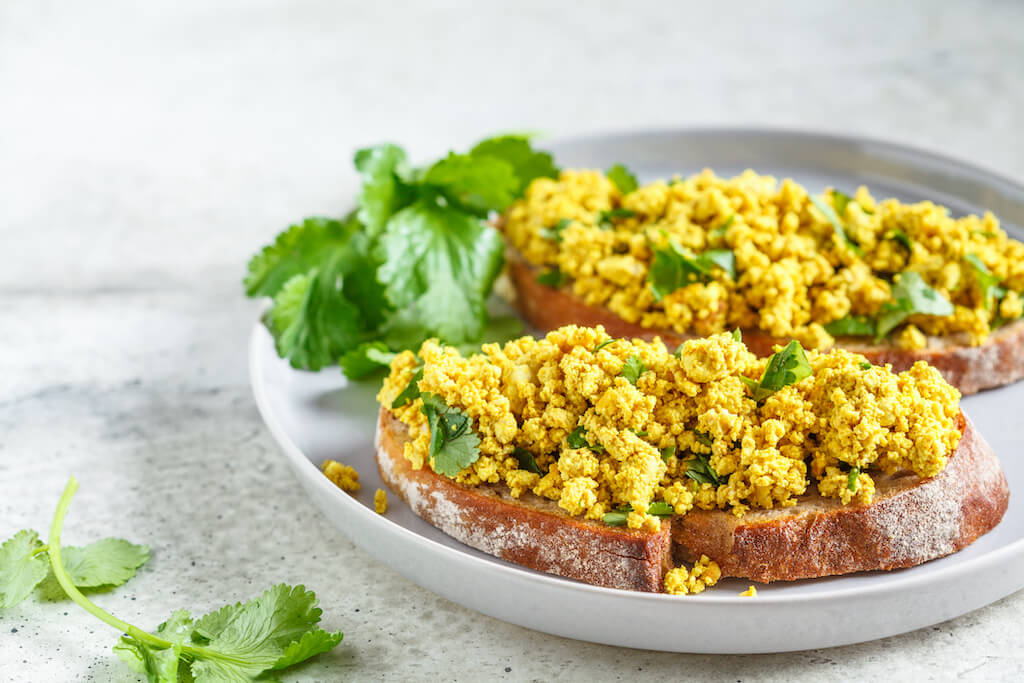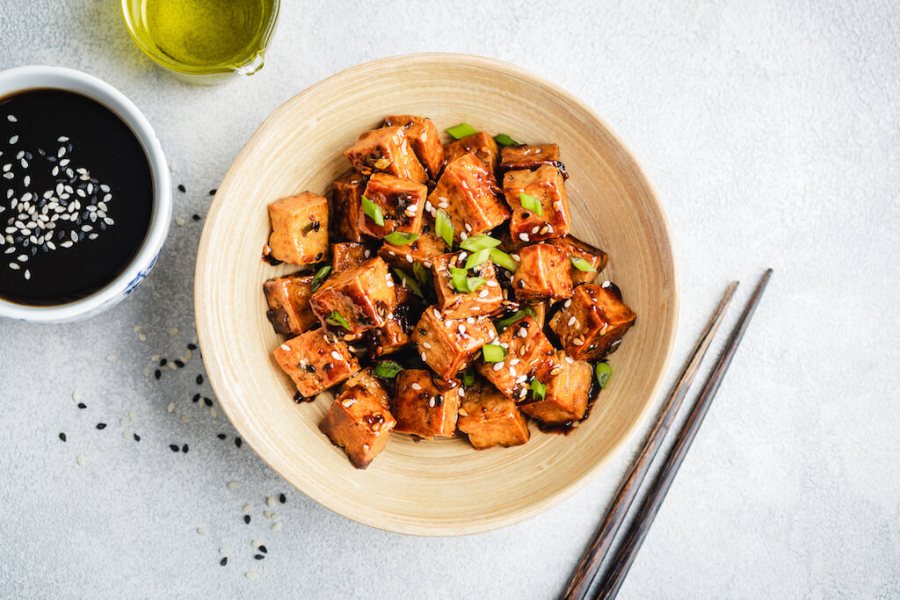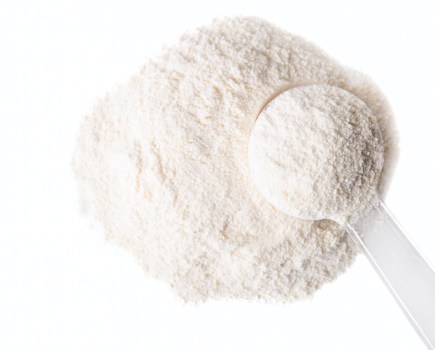Plant-based nutritionist TJ Waterfall reveals the benefits of tofu, including why it’s the perfect high-protein addition to any training plan…
Tofu (or ‘bean curd’) is simply condensed soy milk. “Mmm,” you might be thinking. But hear us out…
What are the health benefits of tofu?
Tofu’s forte is that it’s low in calories, but packs an impressive amount of protein. It also has zero cholesterol and a relatively low amount of saturated fat. This is especially true when we compare it to protein sources from meat and animal products like cheese and eggs.
That’s where the ‘displacement’ theory comes in. If we use soy foods like tofu to replace meat and animal products as a protein source, we can significantly reduce our intake of saturated fat and cholesterol. In turn, this will decrease the risk of cardiovascular disease, which is the leading cause of death globally.
What’s more, tofu is a rich source of powerful antioxidant plant compounds called polyphenols. It’s also filled with heart-protecting saponins. These can improve cardiovascular health through independent mechanisms – not just by lowering cholesterol.
But the benefits of tofu don’t end there. Tofu is also a nutrient-dense food. This means that gram for gram it packs a wide variety of vitamins, iron, calcium, fibre, and essential omega-3 fatty acids.
In fact, thanks to their excellent nutrition profiles, recent meta-analyses combining the results of numerous studies showed that consumption of soy products like tofu is associated with reduced risk of both prostate cancer (the second most commonly diagnosed cancer in men) and diabetes.

Scrambled tofu is the perfect protein-rich breakfast: simply combine with turmeric and seasoning, crumble with a fork, and fry in a bit of oil | Photography: Getty Images
Benefits of tofu for building lean muscle
Still not convinced? Tofu also contains all the nine essential amino acids, so it’s a complete plant protein source. That means for anyone looking to increase their protein intake, it can be an extremely useful addition to the diet. It can even help towards goals of building lean muscle without adding to cholesterol intake.
Aside from being a handy source of protein, tofu – just like other plant-based food sources – also helps with exercise recovery. Two elements that slow recovery time down significantly are inflammation and oxidative stress.
Tofu is an excellent source of phytonutrients, including antioxidants and polyphenols. Researchers have found that these can reduce exercise-induced inflammation, oxidative stress and resulting muscle soreness. So, tofu is the perfect pre- or post-workout snack.
What are the different types of tofu?
You can buy several different types of tofu. They range from extra-soft silken to extra-firm. Each form of tofu is useful for different kinds of dishes.
For example, you can blend soft silken tofu to create desserts like a high-protein, low-fat cheesecake or mousse. Or, you can cut firm tofu into cubes or slices and pan-fry or oven-roast until crispy. You can then eat the tofu in stir-fries, curries, or vegetable rice bowls.
Where to buy tofu:
Never bought tofu before? You can find raw tofu in most supermarkets in the refrigerated section. It’s also sometimes available pre-marinated or even pre-cooked. These options can be useful when you’re short on time. However, bear in mind that as with all pre-prepared foods they’re often made with more salt, sugar, and oil than you would use at home. If you’ve got the time, it’s best to season and cook it yourself.
Another good pointer is to look for organic tofu. That simply means manufactures have made the tofu using non-GM soy beans. Farmers grow these more sustainably, without artificial fertilisers, herbicides or pesticides.
Going organic also means the manufacturers have not added any preservatives or colours to the tofu. Most of the soy beans grown worldwide are used to feed cattle and are genetically modified. So, it’s best to look out for higher quality, healthier options.
Words: TJ Waterfall







